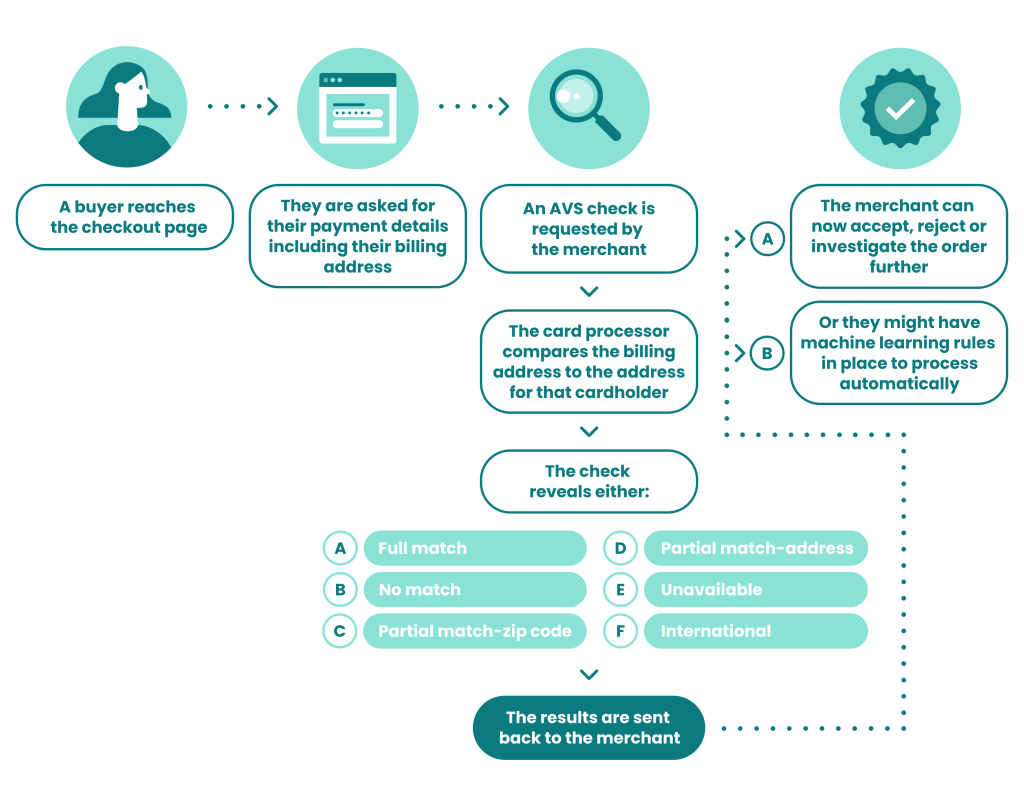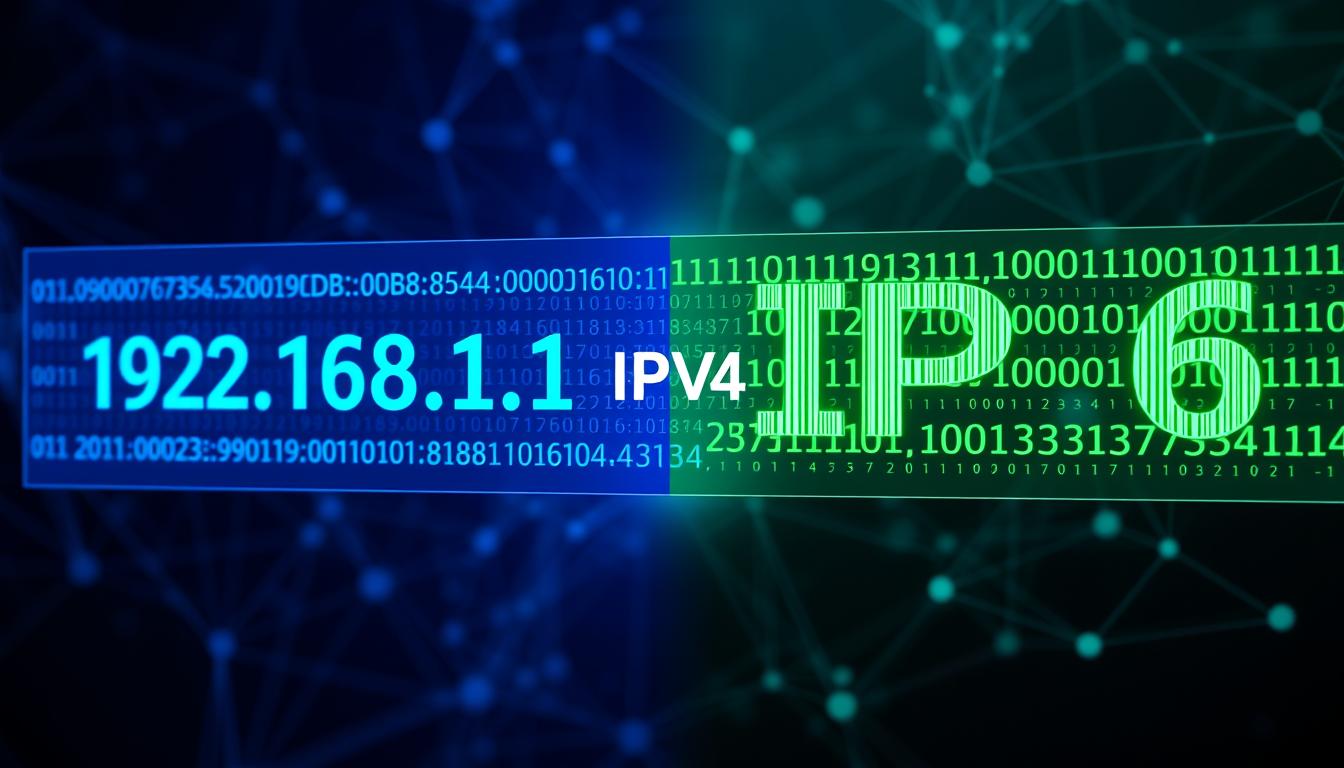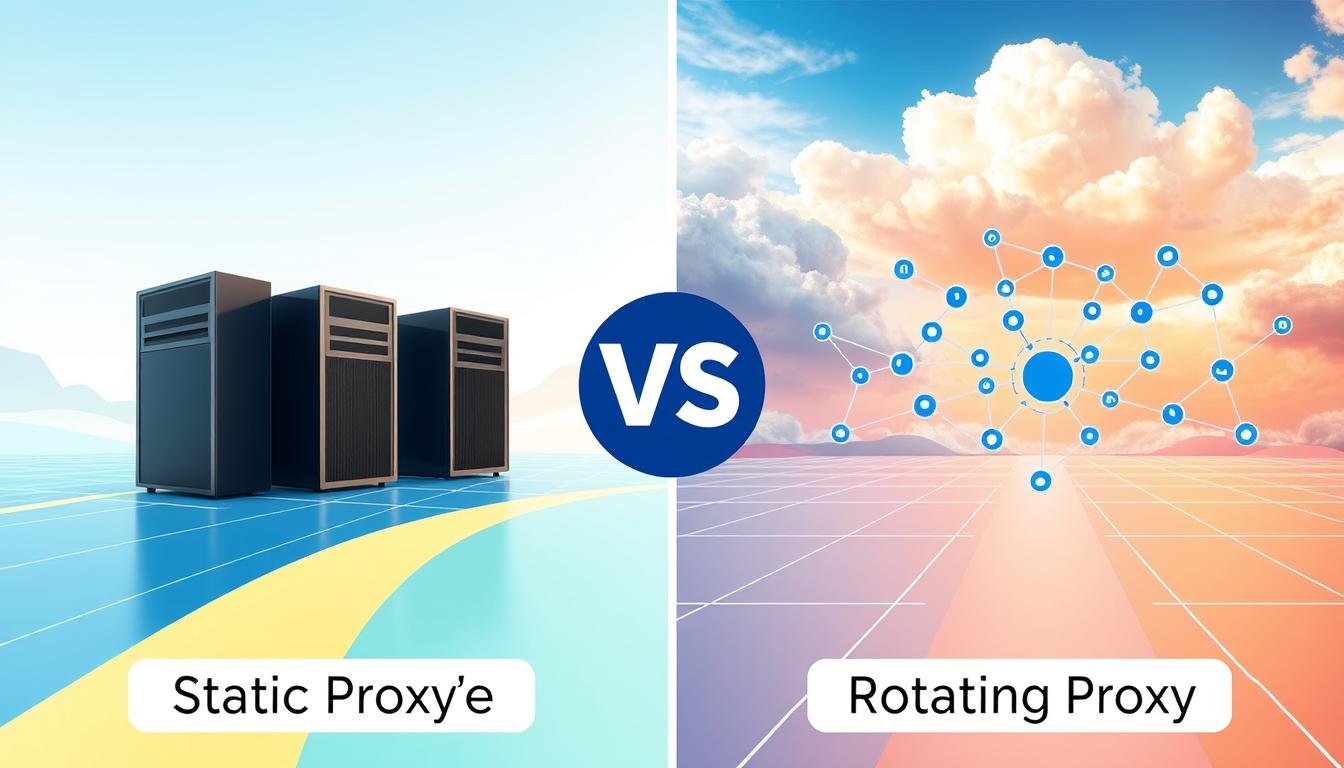FTC disclaimer: This post contains affiliate links and I will be compensated if you make a purchase after clicking on my link.
Now imagine if you’re a business that relies on accurate address information for shipping, billing, and customer data. Address verification is crucial for any business that wants to maintain efficiency and avoid costly errors.In this article, we’ll explore what address verification is and why it’s important to your business. We’ll delve into the benefits of using address verification software and how it can improve your bottom line.
Whether you’re a small business or a large corporation, address verification is a must-have tool for streamlining operations and ensuring customer satisfaction.
Don’t let inaccurate addresses slow down your business. Read on to learn more about the importance of address verification and how it can benefit your organization.
What is Address Verification?
Address verification is an important process for confirming that a person or business is based at the address they provided. These services can help fill in missing parts of an address, confirm whether it exists, and standardize its formatting.
When used as part of an identity verification process, these solutions can ensure that the account in question is connected with a legitimate address.
The use of an address validation system greatly improves customer service and helps to prevent fraud.
For instance, businesses can quickly collect and verify addresses to ensure packages reach their intended destination. This reduces costs associated with undeliverable items while also providing customers with smoother experiences every time they interact with the brand.
Additionally, verifying addresses helps to eliminate instances of fraud taking place from accounts using fake information.
As a result, companies can feel confident about the data they collect and trust that all customer information is accurate and secure.
Why Is Address Verification Important for Businesses?
What’s the difference between address validation and address verification?
Address validation is an important tool used by companies of all shapes and sizes.
By using software to validate entered addresses, companies can help correct entries made in error while also ensuring that shipping and logistics are properly handled.
Address validation often utilizes external databases from postal services to check that the address exists prior to confirming its deliverability. This process helps reduce customer frustration and unwanted logistical issues that can cause trouble when incorrect shipping information is inputted.
Address verification is a form of identity verification that goes beyond simply validating an address and seeks to establish whether the provided information corresponds with one’s real-world identity.
Address verifications rely on multiple sources such as databases from the DMV or credit reporting bureaus to confirm both the accuracy and authenticity of an address.
As such, it serves as an early line of defense against fraud or potential malicious activities; By taking this extra step, companies can make it more difficult for bad actors to fake their identities.
How Does Address Verification Work?
Address verification is an important process for businesses that require the collection of accurate address information. Through this process, user-provided addresses are compared against several standard databases with demographic and geographic data in order to ensure accuracy and completeness.
Many different organizations rely on this verification process to confirm addresses. For example, an eCommerce company can use an address verification Application Programming Interface (API) to auto-complete address forms in order for customers to quickly and easily check out. This same API can also be used by insurance companies in order to research policy quotes by specific geographic locations.
By using an address verification API, businesses can reduce the chances of unintentional human errors like typos leading to returned mail or incomplete addresses.
The address verifier also has the capability to recognize more than 130 different types of international address formats since not every country uses the same postal conventions as others do.
With its help, companies can avoid possible business losses due to customer mistakes or a misunderstanding of global postal procedures.
Thus, investing in a quality address verifier is one-way businesses may protect themselves from such issues and increase their efficiency when conducting transactions worldwide.
Types of Address Verification Services
Address verification services are essential for any business that wants to ensure timely delivery, prevent fraud, and keep shipping costs low.
Different types of address verification services offer a range of solutions to validate and confirm customer addresses. These services can vary in complexity from simple address formatting checks to advanced real-time address verification APIs that can help automate back-end address verification processes.
Here, we will explore the various types of address verification services available, how they work, and how they can benefit organizations of all sizes.
Human Error-Proofing Solutions
Address verification is a crucial process for any business that deals with customer data or runs transactions online.
Unfortunately, human input errors can cause issues like incorrect or invalid addresses, leading to delayed processing times and higher costs. Thankfully, several technologies and techniques can provide effective solutions to prevent these errors and enhance the customer experience.
One way to minimize input errors is through the use of error-proofing technologies such as input validation, which checks the information inputted by the user to ensure its accuracy or address standardization, which ensures the addresses are in the correct format.
Additionally, auto-complete features can make the process even more user-friendly by suggesting the correct address as the customer types.
In summary, incorporating human error-proofing solutions like these into the address verification process can greatly reduce the risk of incorrect or invalid addresses.
By reducing processing time and cost, businesses can improve customer experiences and trust, ultimately leading to higher conversion rates and fewer fraudulent transactions.
Real-Time Address Verification Systems
Real-time address verification is a powerful tool that ensures the accuracy of customer data during the checkout process. These systems continuously check and validate the input address in real time, minimizing human error and preventing fraudulent transactions.
Real-time address verification systems work by comparing the customer’s input data to a variety of databases and postal services. This ensures that the address is valid, formatted correctly, and exists in the postal database.
If there are any discrepancies in the address, the system prompts the customer to correct the information before completing the transaction.
Implementing real-time address verification in your business offers several benefits, including reducing the number of fraudulent transactions, preventing delivery errors, and improving overall customer experiences.
Additionally, accurate address information allows for correct shipping costs and can improve conversion rates by reducing cart abandonment caused by frustration during the checkout process.
Some popular real-time address verification services include SmartyStreets, Loqate, and Experian Data Quality.
Implementing real-time address verification in your checkout process can benefit your business by preventing costly errors and improving customer experiences.
Postal Services-Based Solutions
Postal services and shipping companies like UPS and FedEx offer authoritative sources for address verification.
By pulling from their own databases, these services can verify the accuracy of customer input data and provide real-time updates on address changes. This helps reduce human error during data entry and ensures that customers receive their packages without delay.
Certified service providers can also help standardize address formatting. By correcting misspellings, adding additional address information, and updating old addresses, they can align the address with USPS preferences. This standardization can qualify businesses for discounted shipping rates and avoid errors that result in undelivered packages.
Overall, using postal services-based solutions and certified service providers not only improves the accuracy of address verification but also saves businesses money and streamlines their shipping processes.
Fraudulent Address Detection Software
Fraudulent address detection software is a crucial tool that helps businesses reduce the risk of fraud caused by fake or incorrect addresses.
These solutions work by analyzing various aspects of an address, such as the zip code, city, and state, in real-time, to identify any inconsistencies with the information provided during checkout and determine whether the address is genuine or not.
Some of the benefits of using fraudulent address detection software include reduced chargeback fees, improved shipping accuracy, and an increase in customer trust and satisfaction.
By incorporating this software into their operations, businesses can avoid erroneous expenses incurred due to undelivered packages and prevent fraudulent transactions on their platforms.
Several reputable providers of fraudulent address detection software exist in the market, including Accertify, Fraud.net, and Kount.
Each solution offers unique features that make them stand out, such as real-time risk assessment, machine learning algorithms, and customizable rules and thresholds.
By adopting one of these solutions, businesses can streamline their address verification processes and make sure that they only deal with genuine customers to maximize their profits and maintain customer trust.
Address Verification Methods
Geocoding & Reverse Geocoding
Geocoding is widely used in many industries and applications as it helps with determining the exact geographic location of an address, place, or point on a map.
For example, businesses use geocoding for their delivery services to make sure that goods get delivered on time and accurately.
Geocoding can also provide insight into store networks and enable smart routing for the delivery personnel. At the same time, geocoding can help identify real-world risks associated with taking certain routes.
In businesses apart from logistics, such as property management, geocoding can be used to improve data accuracy and to create sophisticated visualizations of properties or locations.
Additionally, this method can help marketers pinpoint target locations based on demographic data associated with them. This further helps them tailor marketing messages accordingly depending on the consumer base in each region.
On the other hand, reverse geocoding uses geographical coordinates such as latitude and longitude to locate addresses or places.
This method is useful when trying to determine the region or area where a particular event happened or when researching the population density of certain areas by creating maps out of its coordinates.
It can also be used to update navigation systems by updating its database with current coordinates and locations; this is especially important in larger cities
Fuzzy Matching
Fuzzy matching is a process of finding strings that match, even if there’s a typo or other small mistake. It’s incredibly useful for address verification or searching databases, as these are frequently filled with typos due to human error.
With fuzzy matching enabled, errors in input data can still bring back the desired results. This technology is particularly useful for mobile digital environments that are prone to typos due to their small screen sizes.
Fuzzy matching uses natural language processing algorithms to detect misspelled or missing information such as spaces and letters and make sure it presents accurate results. This ensures that customer data can be added reliably to CRM systems which leads to better customer engagement.
Fuzzy matching also allows companies to identify and correct duplicate records quickly and accurately which increases data quality and prevents duplication of efforts in the database.
Overall, this technology helps businesses provide better services while avoiding costly implementation processes associated with traditional address validation technologies.
Address Standardization
The process of address standardization is fundamental for achieving data accuracy and consistency. It involves the transformation of address data into a consistent, standardized format that is supported by all systems.
The challenge lies in understanding the nuances of each postal system’s official format, which are often quite distinct from one another.
To simplify the process, software developers have created address standardization applications and APIs that can intelligently break unstructured address data into its individual parts for easier reformatting into the correct output structure.
At their core, these tools use advanced logic to make sense of complex addresses without manual effort or programming knowledge. This cuts down tremendously on human errors and processing time.
As a result, organizations that need to communicate with external databases or wish to streamline their mailing operations can benefit greatly from using modern address standardization strategies.
Benefits of Using an Address Verification Service
Address verification is an essential process that businesses can use to validate the shipping information provided by customers.
With the rise of online transactions, businesses must ensure that they are accurately verifying customer addresses to avoid delivery errors and fraudulent transactions.
Address verification services are designed to provide accurate address information that helps businesses streamline their checkout process, improve shipping accuracy, and avoid bad actors.
Accurate Billing Addresses and Shipping Costs
Having accurate billing addresses and shipping costs are critical components of a business. Inaccuracies in billing addresses or shipping costs can significantly impact customer experiences, operational efficiency, and costs.
Address verification is a vital tool for businesses to ensure that accurate billing and shipping information is captured and used.
With address verification, businesses can reduce the costs and delays associated with carrier address correction fees and returns. Businesses can enjoy more efficient operations with reduced handling of returns, reshipments, and refunds.
Improved deliveries and customer experiences also result from accurate address verification. By ensuring that customer addresses are correctly captured, businesses can reduce the possibility of delays and failed deliveries. This not only leads to happier customers but can also reduce the financial impact of lost or delayed shipments.
In conclusion, implementing accurate address verification processes in a business can lead to reduced costs, improved deliveries, better customer experiences, and overall improved business outcomes.
Making address verification a priority can help businesses avoid inaccurate billing and shipping costs, and ultimately provide a better experience to their customers.
Improved Customer Experiences and Trust
The accuracy of addresses is crucial in conveying a strong sense of reliability and trustworthiness to customers.
By implementing an address verification system, businesses can ensure the capture of accurate addresses, leading to fewer delays and failed deliveries. This not only leads to improved delivery times and reduced returns but also enhances the overall user experience, ultimately fostering greater trust in the brand.
Address verification reassures customers that their personal information is accurate, which has a positive effect on the likelihood of repeat business and word-of-mouth recommendations.
Overall, by investing in an address verification tool, businesses can enjoy the benefits of an improved customer experience, saving valuable resources and strengthening customer relationships.
Reduced Risk of Fraudulent Transactions
Address verification is an essential tool in reducing the risk of fraudulent transactions for businesses.
With the advancement of online transactions, fraudulent activities have become more common, and companies need to be proactive in preventing scams from happening.
Address verification, commonly known as AVS, is one of the most effective ways to achieve this objective.
AVS helps businesses prevent scams by verifying the address of the cardholder. In essence, it confirms whether the billing address entered by the customer matches the address on file with the credit card company.
If there is no match, or if the address is invalid, the transaction is flagged as potentially fraudulent. This provides businesses with an opportunity to investigate the transaction further, either by contacting the customer directly or by involving law enforcement agencies.
The types of fraud prevented by address verification are numerous. For instance, AVS can help prevent criminals from using fake addresses when making online transactions.
It can also help detect human errors during the checkout process, such as incorrect data entry due to typing mistakes. By verifying customer addresses, businesses can reduce the risk of fraudulent transactions and ensure the accuracy of shipping costs and customer experiences.
In conclusion, address verification is an essential tool in preventing fraudulent transactions. By comparing the billing address provided by the customer with the address on file with the credit card company, businesses can identify bad actors, inaccurate addresses, and outdated address databases.
Adopting AVS as a back-end address verification tool can help businesses reduce the risk of fraudulent transactions, increase conversion rates, and protect the financial institution’s and the customer’s well-being.
Streamlined Checkout Process & Fewer Abandoned Carts
Address verification can significantly streamline the checkout process for customers and reduce the incidence of abandoned carts.
By using real-time address verification and intelligent auto-complete features, businesses can ensure that customers enter accurate addresses and reduce the chances of human error during checkout.
Real-time address verification ensures that the customer’s address is correct, and it can also help prevent fraud by detecting fake or invalid addresses. Moreover, intelligent auto-complete features help customers complete their address details faster by suggesting relevant address details. This can make the checkout process faster and less frustrating, resulting in fewer abandoned carts.
When using address verification, accurate billing and shipping addresses can also lead to improved conversion rates. Customers are more likely to trust a business that ensures their address details are correct and accurate. This level of trust can result in positive customer experiences, repeat purchases, and referrals.
In conclusion, businesses that prioritize address verification during the checkout process can significantly streamline the process, reduce abandoned carts, and improve conversion rates by ensuring that customers enter accurate and reliable billing and shipping addresses.
Avoidance of Costly Returns or Re-Shipping Fees
Address verification systems (AVS) can help businesses avoid costly returns or re-shipping fees by ensuring that the customer’s address details are accurate and valid.
Invalid or undeliverable addresses can result in packages being returned to the sender, leading to lost sales and additional shipping costs. AVS can detect these issues and recommend valid address alternatives to improve delivery success rates.
AVS can also reduce chargebacks and disputes by ensuring that the billing address provided by the customer matches the address on file with the credit card company or financial institution. This verification process can prevent fraudulent transactions and reduce financial losses.
In addition to improving delivery success rates and reducing chargebacks, AVS can also improve the customer experience.
By making the checkout process faster and more accurate, customers are more likely to trust and return to a business that values their time and ensures their address details are correct.
By using AVS, businesses can also reduce their return-to-sender rates and improve their bottom line. Avoiding costly shipping fees and lost sales due to undeliverable packages can increase profitability and streamline business operations.
Overall, implementing AVS is a smart business decision that can provide a variety of benefits and improve the overall customer experience.
Conclusion
In conclusion, address verification is an essential tool for businesses of all sizes and industries. By ensuring that customer information is accurate and up-to-date, companies can improve their bottom line by reducing fraud, increasing delivery success rates, and improving customer satisfaction.
With the rise of online transactions and remote workforces, address verification has become even more critical in today’s digital age. Investing in a reliable address verification system can save businesses time, money, and resources while safeguarding against potential risks.
Don’t let inaccurate data be a barrier to your business’s success – prioritize address verification today!










